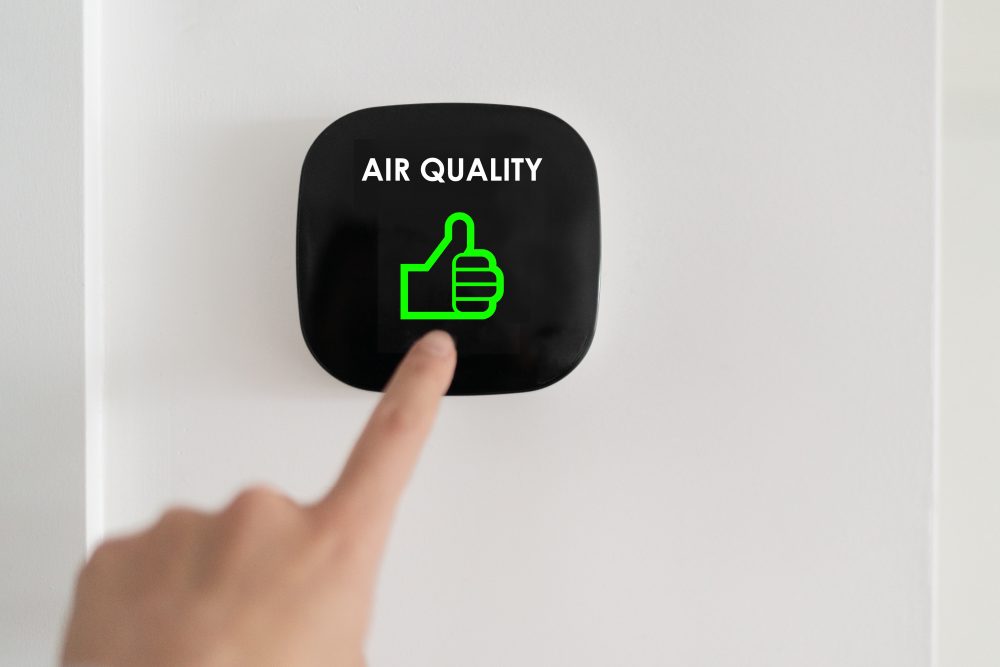Impact of a Dirty Home on Indoor Air Quality
Maintaining a clean and tidy home is not just about aesthetics or a sense of organization. It also plays a crucial role in ensuring the health and well-being of everyone living there. One aspect often overlooked is the impact of a dirty home on indoor air quality. In this blog post, we’ll explore how the impact of a dirty home can affect the air you breathe and provide practical tips to improve indoor air quality.

Understanding Indoor Air Quality (IAQ)
Indoor air quality refers to the quality of the air within buildings and structures, especially as it relates to the health and comfort of the occupants. Poor IAQ can lead to a range of health issues, including allergies, respiratory problems, and even long-term chronic conditions.
How Does a Dirty Home Affect Indoor Air Quality?
Dust and Allergens: Dust, pet dander, and pollen are common allergens that accumulate in a dirty home. When they become airborne, they can trigger allergies and respiratory issues, especially for individuals with asthma or sensitivities.
Mold and Mildew
Damp and dirty areas in the home provide ideal conditions for the growth of mold and mildew. These microscopic organisms release spores into the air, which can cause allergic reactions, respiratory problems, and even infections in some cases.
Volatile Organic Compounds (VOCs)
Many household products, such as cleaning agents, paints, and air fresheners, release volatile organic compounds into the air. In a dirty home, these chemicals can linger and mix with other pollutants, leading to poor indoor air quality.
Pest Infestations
A dirty home can attract pests like cockroaches, rodents, and dust mites. The droppings and body parts of these pests can become airborne and worsen indoor air quality, potentially triggering allergies and asthma attacks.
Improving Indoor Air Quality
Regular Cleaning: Establish a routine for regular cleaning to reduce dust, dirt, and allergens. Vacuum carpets and rugs, dust surfaces, mop floors, and clean bedding regularly. Use a vacuum cleaner with a HEPA filter to trap small particles effectively.
Control Moisture
Clean up spills promptly, fix any water leaks, and maintain proper ventilation in areas prone to moisture, such as bathrooms and kitchens. Keep humidity levels below 50% to prevent mold and mildew growth.
Proper Ventilation
Open windows and doors whenever possible to allow fresh air to circulate. Use exhaust fans or a range hood in the kitchen and bathroom to remove moisture, odors, and pollutants. Consider installing air purifiers with HEPA filters for added filtration.
Minimize Chemicals
Opt for natural cleaning products or those labeled as low VOC. Avoid using aerosol sprays and air fresheners, as they can release harmful chemicals. Instead, opt for natural alternatives like essential oils or fresh flowers.
Pet Care
Regularly groom and clean up after your pets to minimize the presence of pet dander. Wash pet bedding frequently and consider using air purifiers or HEPA filters to capture allergens.
A clean and well-maintained home counteracts the negative affects a dirty home on indoor air quality. It’s also essential for your health and the well-being of your family. By keeping your home clean, controlling moisture, improving ventilation, and minimizing the use of chemicals, you can significantly reduce the presence of allergens, mold, and other pollutants in the air you breathe.
Contact us at The Clean Haven if you’re in need of a deep clean. With our expertise, your house will be spotless in no time. So, let us help you out today, and remember, a healthy home is a happy home!
